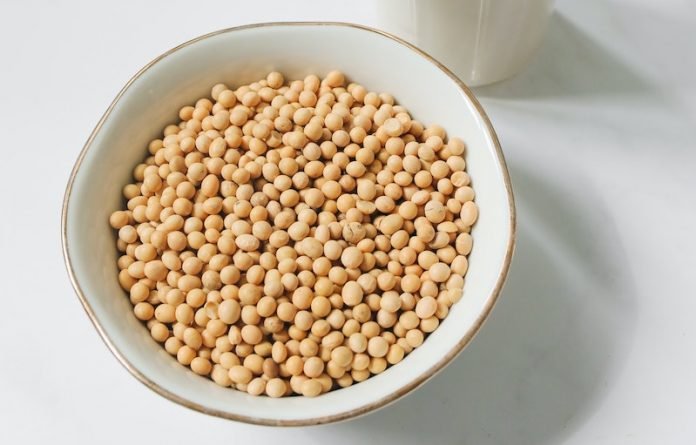
Scientists from the University of Connecticut found that soy is a good choice for plant-based proteins.
The research is published in the Journal of Agriculture and Food Research and was conducted by Yangchao Luo et al.
Soy—the versatile protein source that comes from the species of legumes known as soybeans—is becoming a popular alternative to meat and dairy products, and for good reason.
In the paper, the team suggests that in comparison to other plant-based proteins, soy protein provides the most complete nutrients in terms of amino acids, compared to animal sources.
Soy contains almost every amino acid, with only one minor exception, methionine, which is an essential amino acid, and what is called a limiting amino acid. Other plant-based proteins may miss two, three, or even four different essential amino acids.
People can easily get all essential amino acids in a meal by mixing plant-based proteins or by pairing soy-based proteins with grains.
Upon extrusion process, soy-based proteins undergo a series of physicochemical changes to form fibrous anisotropic structure, the texture of which becomes very similar to meat products.
When modified chemically or enzymatically, soy protein can further develop sensory characteristics that can mimic real meat.
This is very easy to do for soy protein but more challenging for many other plant proteins. A lot of food companies nowadays are trying to develop meat alternatives, and soy-based protein is just the top choice for the food industries.
The researchers also say that for animal products, the major concern is fat, and most of the fat in animal meat products is saturated or trans-fat, which can increase the risk of chronic illnesses like heart disease, high cholesterol, and high blood pressure.
That’s not the case with plant-based products. Other health benefits include a reduction in different types of cancers, such as breast cancer, prostate cancer, and gastric cancers over the long term of consumption of soy-based products like tofu and soymilk.
A major contribution from plant-based proteins is not protein per se, but plants contain a lot of dietary fiber, phytochemicals, micronutrients, and different minerals and vitamins that are lacking in animal-based products.
Phytochemicals are very highly potent antioxidants that scavenge free radicals in the cells, and this is very helpful for fighting many cancers.
Soymilk is another popular soy product. The beans are crushed and filtered to make the milk. Calcium in soy proteins and soy-based products is in very high amounts.
In terms of micronutrients, one of the phytochemicals which is a very strong antioxidant is isoflavone and when combined with calcium help each other for absorption, digestion, and metabolism.
In this aspect, people can have higher health benefits than animal products that do not contain these phytochemicals.
If you care about nutrition, please read studies that blackcurrants can reduce blood sugar after meal, and one avocado a day could protect you from heart disease.
For more information about nutrition, please see recent studies about supplements that could improve memory functions, and results showing a high-fiber diet could help reduce the dementia risk.
Copyright © 2022 Knowridge Science Report. All rights reserved.



